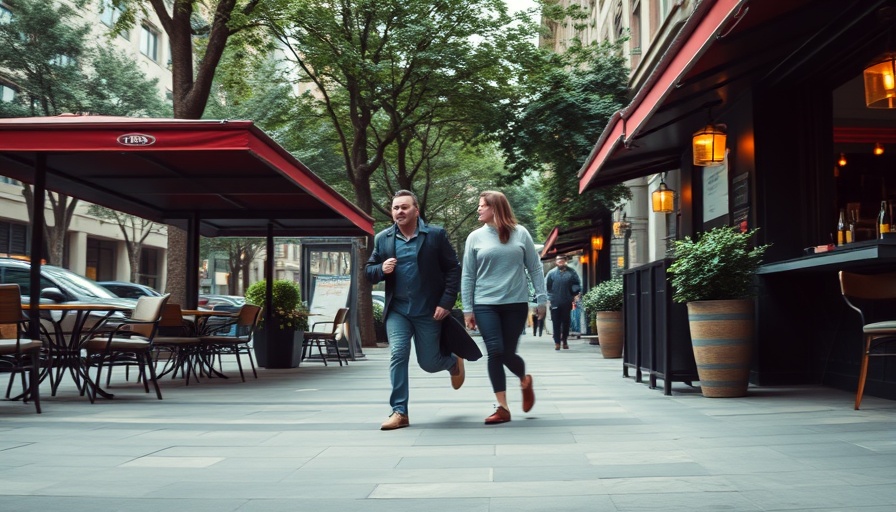
How Social Media Stepped Up to Help a Local Restaurant
A recent incident at Phlavz Bar & Grille in University Village, Chicago, illustrates the power of community engagement through social media. When three diners left without paying for a $200 meal, the restaurant’s owners took their plight online. This unique case not only highlights the challenges faced by small businesses but also showcases how social platforms can aid in community accountability.
The Impact of Dine-and-Dash Incidents
Dine-and-dash incidents have increasingly plagued independent restaurants, especially since the onset of the COVID-19 pandemic. Such acts of theft are more prevalent during the summer months, where outdoor dining becomes a lifeline for small businesses reliant on good weather for revenue. According to Sam Toia, president of the Illinois Restaurant Association, these incidents are detrimental to the livelihoods of struggling owners, adding further strain to an already difficult operational environment.
Community Reaction and Responsibility
Following the dine-and-dash incident, the owners received multiple responses from members of the community. People took to their social media platforms to help identify the suspects, demonstrating that, while challenges abound, a supportive community remains steadfast. "It’s very disappointing to see that from the community we serve,” co-owner Andrew Bonsu remarked, emphasizing how committed they are to supporting their local patrons.
The Larger Conversation on Hospitality and Responsibility
This situation brings to light broader conversations regarding the responsibilities of restaurant patrons. When someone dines at a restaurant, they engage in a social contract—enjoying the service while compensating the business for their hard work. As co-owner Phil Simpson pointed out, servers often rely on tips, making it particularly harmful when patrons leave without paying, jeopardizing their income and the restaurant’s ability to operate sustainably.
Future of Small Business in the Digital Age
As internet engagement continues to rise, businesses are increasingly using social media to advocate for themselves and reinforce community ties. This incident at Phlavz Bar & Grille demonstrates not only the vulnerabilities of small restaurants but also the potential for social media to act as a platform for redress and community support. The owners have now reported the theft to University of Illinois-Chicago police, marking their commitment to pursuing the matter through appropriate channels.
Practical Insights for Restaurant Owners
As the digital landscape evolves, it’s imperative for restaurant owners to leverage social media strategically. Here are a few actionable tips:
- Maintain an active social media presence to foster community interaction.
- When faced with issues, consider reaching out to your followers for support and visibility.
- Build a narrative around your establishment that highlights your contributions to the local economy.
The story exemplifies how challenges can catalyze community supporters and reshape how local businesses interact with their patrons. Engaging with your audience can create a sense of transparency and encourage accountability.
In conclusion, the incident at Phlavz Bar & Grille not only sheds light on the urgency of protecting small businesses but also emphasizes the importance of community involvement. Such events compel us to reevaluate our role as consumers and advocates for the establishments that serve us.
Spread the Word, Support Local
As community members, it’s our responsibility to support local businesses in meaningful ways. If you’re inspired by the story of Phlavz Bar & Grille, consider advocating for your favorite local restaurants through social media, visiting them, and encouraging others to do the same. Book Your Brand Voice Interview Now!
 Add Row
Add Row  Add
Add 




Write A Comment